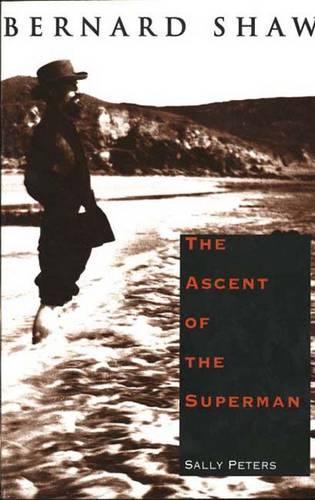Full Product Details
Author: Sally Peters
Publisher: Yale University Press
Imprint: Yale University Press
Edition: New edition
Dimensions:
Width: 15.60cm
, Height: 0.20cm
, Length: 23.50cm
Weight: 0.553kg
ISBN: 9780300075007
ISBN 10: 0300075006
Pages: 344
Publication Date: 01 April 1998
Audience:
College/higher education
,
Professional and scholarly
,
Undergraduate
,
Postgraduate, Research & Scholarly
Format: Paperback
Publisher's Status: Active
Availability: Manufactured on demand

We will order this item for you from a manufactured on demand supplier.
Reviews
A tendentious, trendy reading of Shaw, with an entirely speculative theory of secret homosexuality. Examining Shaw's literary ambitions, his passionate yet finally celibate romanticism, and his ostentatiously ascetic lifestyle, Peters (a visiting scholar at Wesleyan Univ.) ostensibly disavows Freudianism but nonetheless takes up its assumptions of suppressed meanings and motives - which only a critic can decipher. Suspicious of the mercurial Shaw, Peters is rightly skeptical about his evasions concerning his shabby-genteel childhood and drunken father, and his protestations of his mother's virtue despite her affair with a Dublin musical impresario. Peters finds in Shaw an ambitious personality given early on to self-deception and dissimulation: a pathologically deluding figure as an embryonic artistic genius in need of a corroborative ideology. The author scrutinizes Shaw's interest in evolution and eugenics in his formulation of his theory of the Life Force and the Superman. She claims the influence on him of sexologists of the period - such as Krafft-Ebing and Havelock Ellis - trying to trap Shaw in the paradox that he could not be either artist or degenerate without being both; thus he had to write in code and to adopt eccentrically austere habits, such as vegetarianism and celibacy, to keep himself in check. Although Peters selectively cites Shaw's diaries and correspondence as reflections of his interior struggle, she renders her argument in either windy rhetoric - Shaw's ethereal vs. his fiery natures, his masculine/dynamic vs. his feminine/passive aspects - or gender-criticism jargon, e.g., her critique of his epistolary love affair with Ellen Terry. Riding the current academic hobbyhorses, including gender reversal and the gaze, Peters offers a rhetorically overloaded version of Shaw's life and work. (Kirkus Reviews)
One of the great objections to Bernard Shaw's plays is that he knew nothing about love, that he was always too cerebral and lacked passion. Sally Peters demonstrates that in his personal life, this was far from the case, and goes far to show how and why he detached a depth of erotic feeling (and indeed experience) from his work. Intensely probing but far from prurient, her interest in Shaw's sexuality and her conviction of its importance to his work is amply supported in a book which adds much even to the lengthy biographies already available. (Kirkus UK)
Author Information
Sally Peters is visiting lecturer in liberal studies at Wesleyan University. She has written widely on Shaw and on other subjects.



